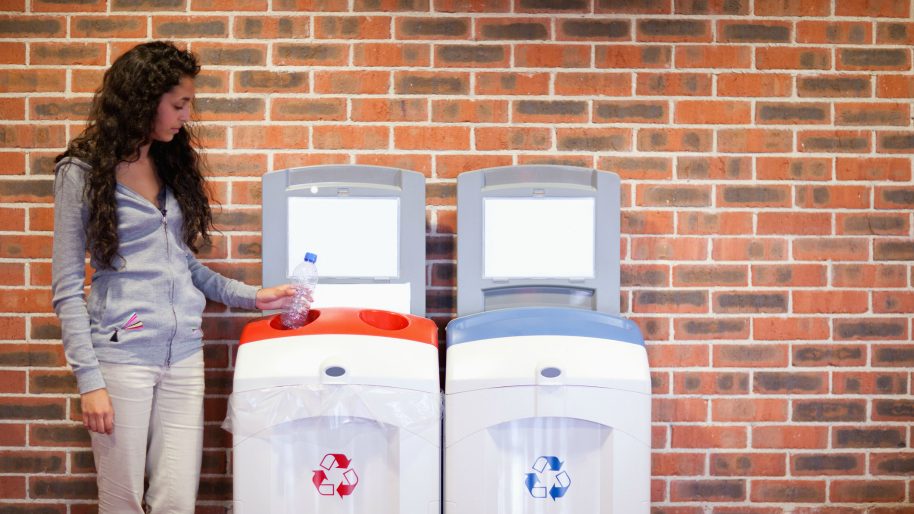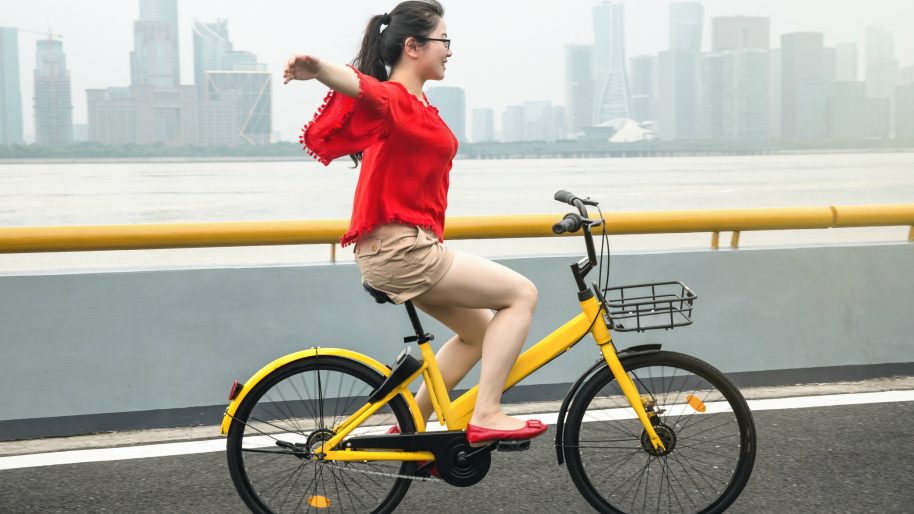Photo: Yellow Dog Productions (Getty Images)
When you’re in college and loaded with a busy schedule, you might not have time to always be eco-friendly or think about how to go green. However, adopting a greener approach to life doesn’t have to be difficult. Implementing small changes to your daily routine can help protect and preserve the environment in the long run.
Here are 10 ways you can go green and reduce your carbon footprint while you’re a student.
1. Take Notes Electronically
The world is now more digitally-focused than ever before, so taking notes electronically should be an easy transition for most college students. You’ll save money by not purchasing as many notebooks or flashcards and you’ll save paper (and therefore, trees) simultaneously.
2. Adopt Reusable Bag Practices
When it’s time for your regular shopping trip, take reusable bags with you instead of opting for paper or plastic at the grocery store. Using several plastic or paper bags with every grocery trip can add up very quickly and become a whole lot of unnecessary garbage over a lifetime.
Personal Finance 101: 5 Easy Ways For College Students To Save Money

3. Buy A Refillable Water Bottle
It’s estimated that up to 80 percent of water bottles in the United States never get recycled. By 2050, the amount of plastic in the ocean will outweigh fish, pound for pound. In addition, it takes almost three times the amount of water that’s in a water bottle to create the bottle in the first place! Avoid all these environmental sins by purchasing a refillable water bottle and making it your one and only. You’ll help your wallet and the environment at the same time.
4. Recycle and Upcycle
By now, recycling should be a no-brainer. Whenever you are able to, recycle. Whether it’s paper products, plastics, or cans, think about what kinds of trash can be saved from a landfill. Go one step further and upcycle old clothes, furniture, and other items by donating them or selling them at a community garage sale.

5. Reduce Power Usage
When you leave a room, turn off the lights and all other electronics or appliances. Unplug any chargers that aren’t being used. It can be easy to forget to switch things off and unplug unused electronics when you leave your room, but being mindful about saving electricity can help you to save a lot of money (not to mention the Earth!) long-term.
Rise and Shine: 5 Life Hacks to Help College Students Tackle Early Mornings
6. Buy Less and Borrow
Try to buy only what you actually need. In a consumer culture, it’s easy to fall into overbuying habits. If you only purchase what’s necessary, you’ll not only be going green but saving hard-earned money as well. (It’ll also be easier to vacate your pad after you graduate if you have less stuff!) Whenever you can, borrow items instead of buying them. Public libraries are a great way to blowing your budget on books, albums, and movies; borrowing these items also reduces the number of shipping boxes and/or shopping bags that get wasted when you purchase those items online or in a store.
7. Walk or Cycle
In addition to helping you live a healthier lifestyle, cutting down on driving can help keep the air clean and save you a lot of gas money as well. There are many physical and mental benefits to simply switching to cycling and walking. You’ll likely find yourself in a happier headspace when making healthier choices, too.

8. Save Energy
Set your thermostat a few degrees lower in winter and a few degrees higher in summer to save on heating and air conditioning, respectively. Warm up with blankets and extra layers instead; cool off with an energy-efficient ceiling fan or a quick, cold shower. You probably won’t notice much of a difference with the slight temperature tweaks but the environment will!
9. Don’t Purchase Aerosol Sprays
With tons of beauty products out there, it’s very easy to find products in eco-friendly pump sprays. Aerosol sprays are not good for the environment as they can scatter light and change the Earth’s reflectivity along with being difficult to dispose of.
10. Reduce Your Water Usage
There are many ways you can reduce your water usage on a daily basis but so many people forget to do it. Start by turning off the water when you brush your teeth or wash your face, then slash your shower time by a few minutes. Little changes like this will save a lot of water and require little to no sacrifice.









